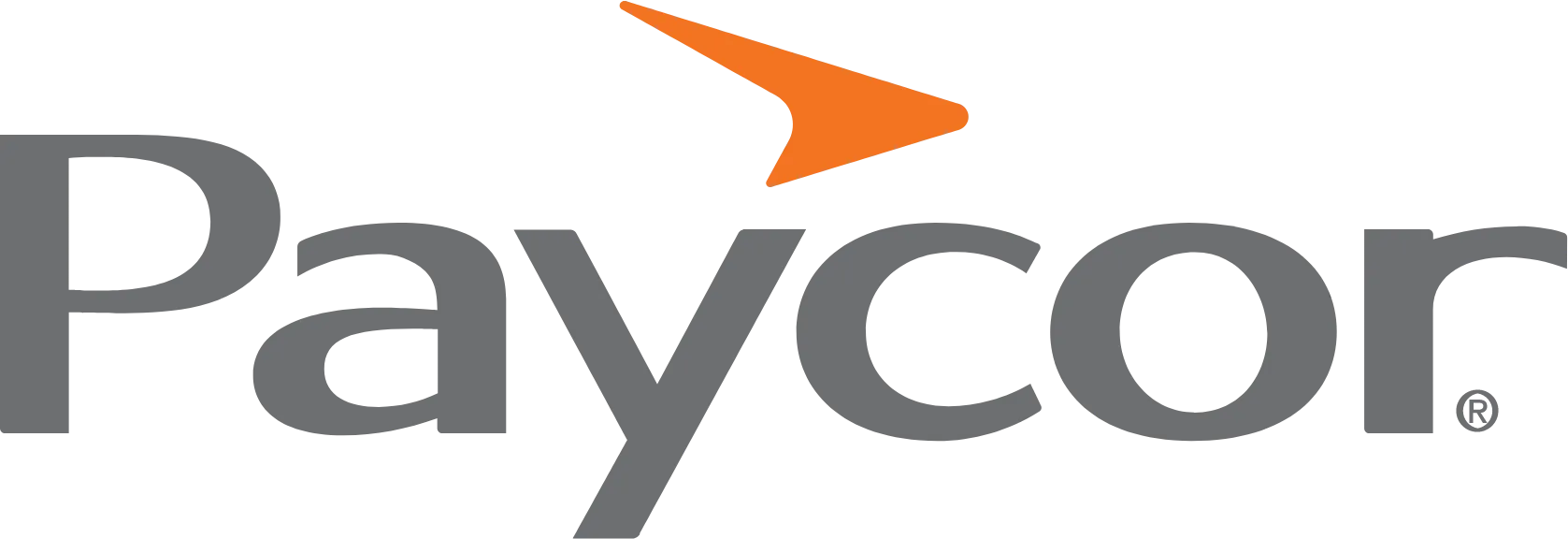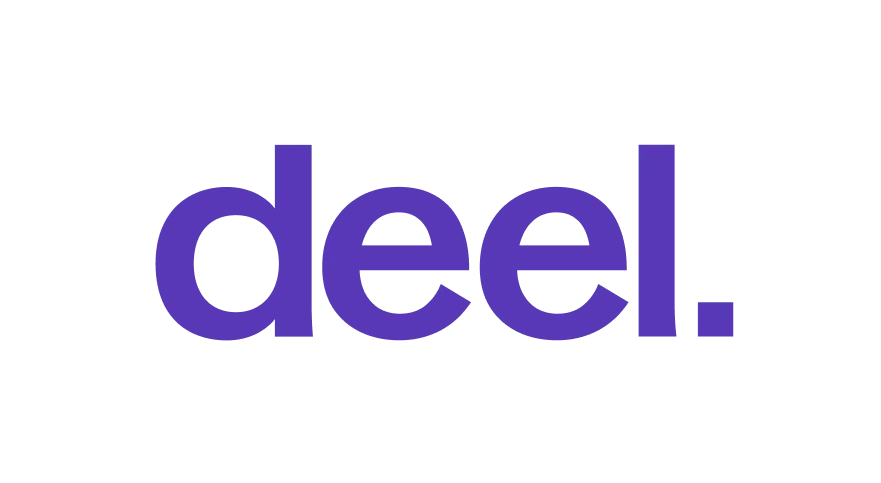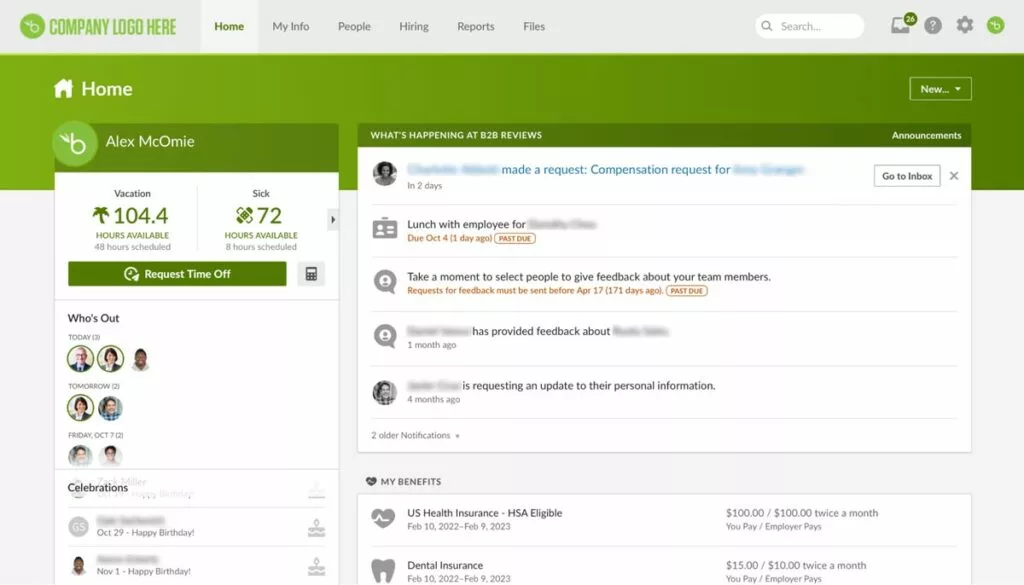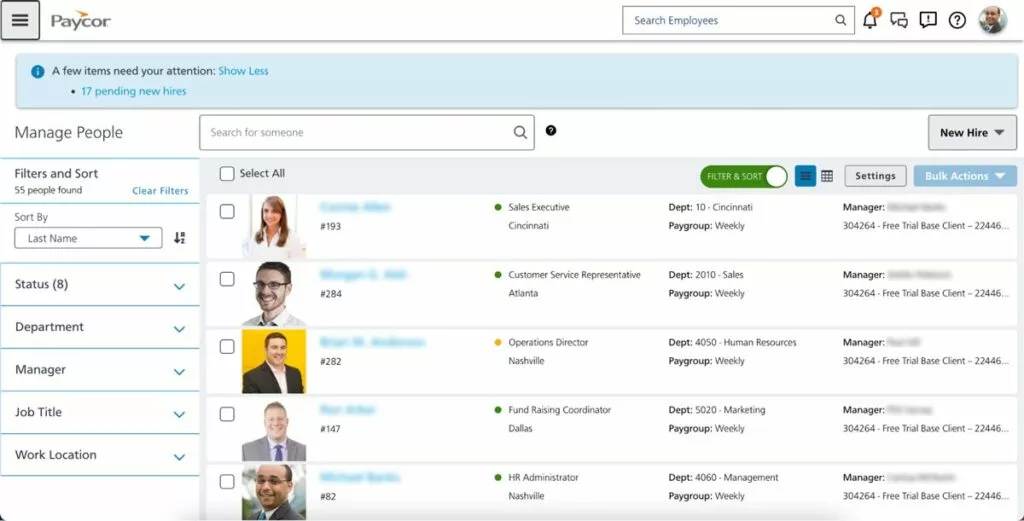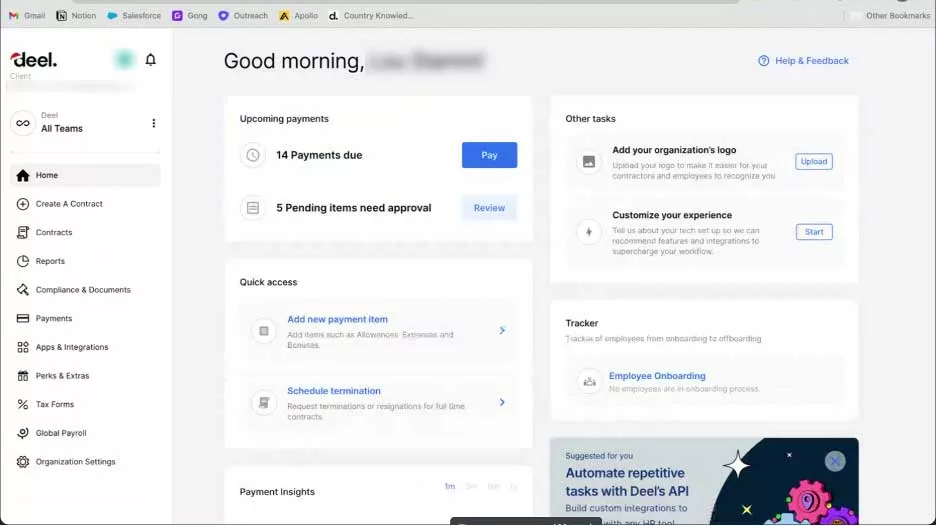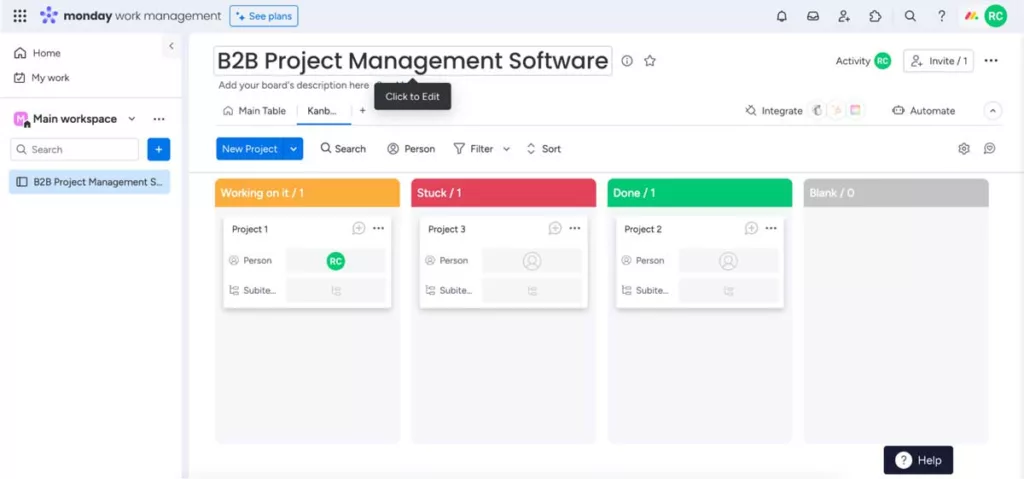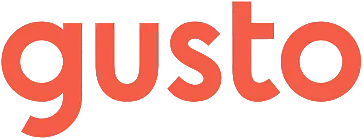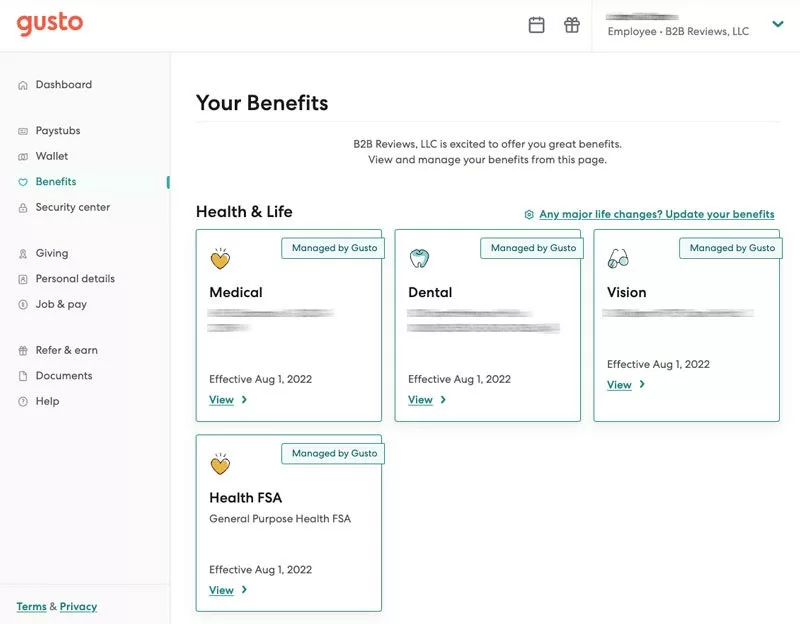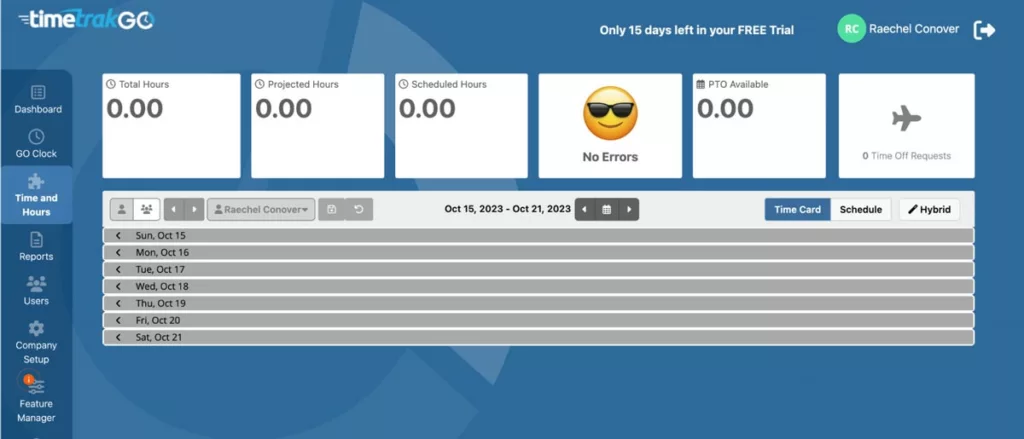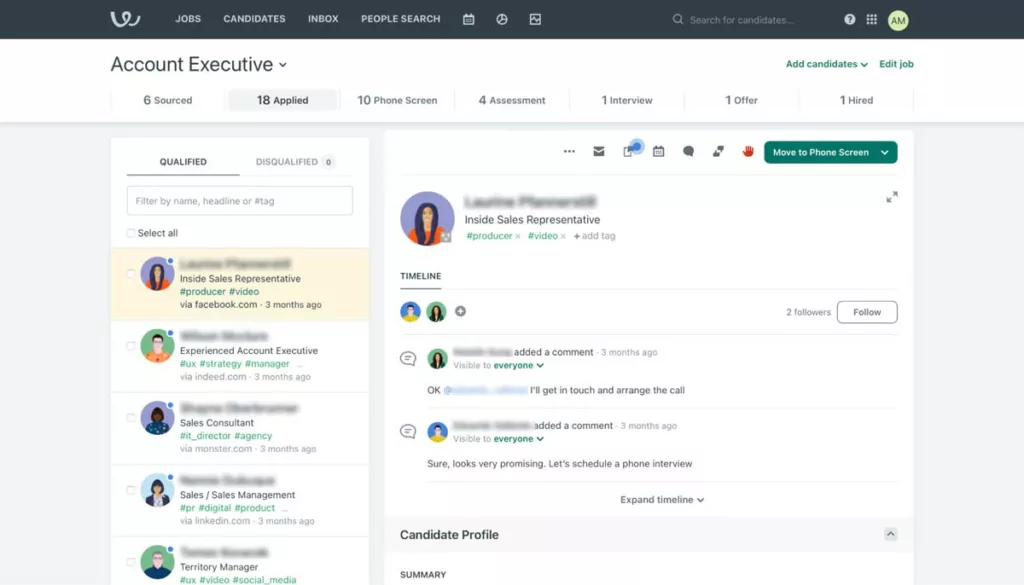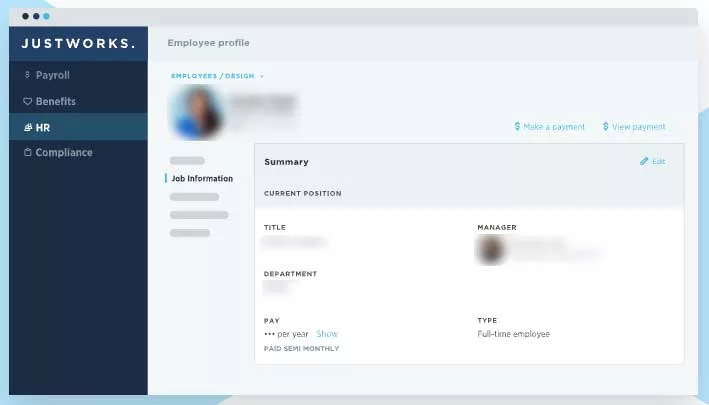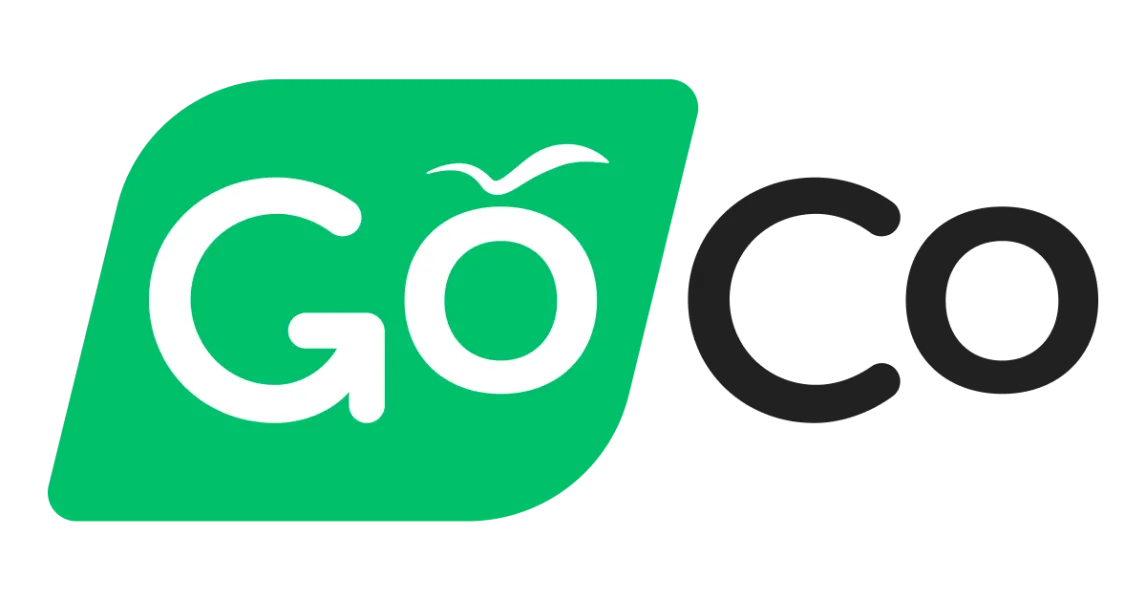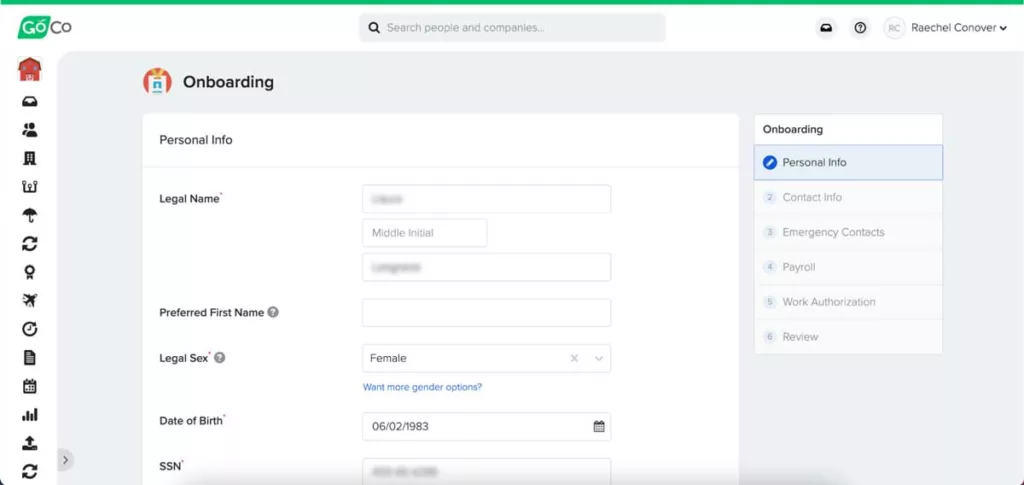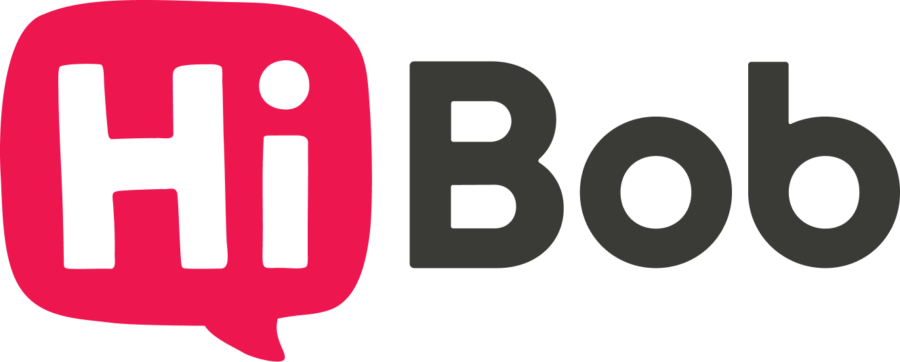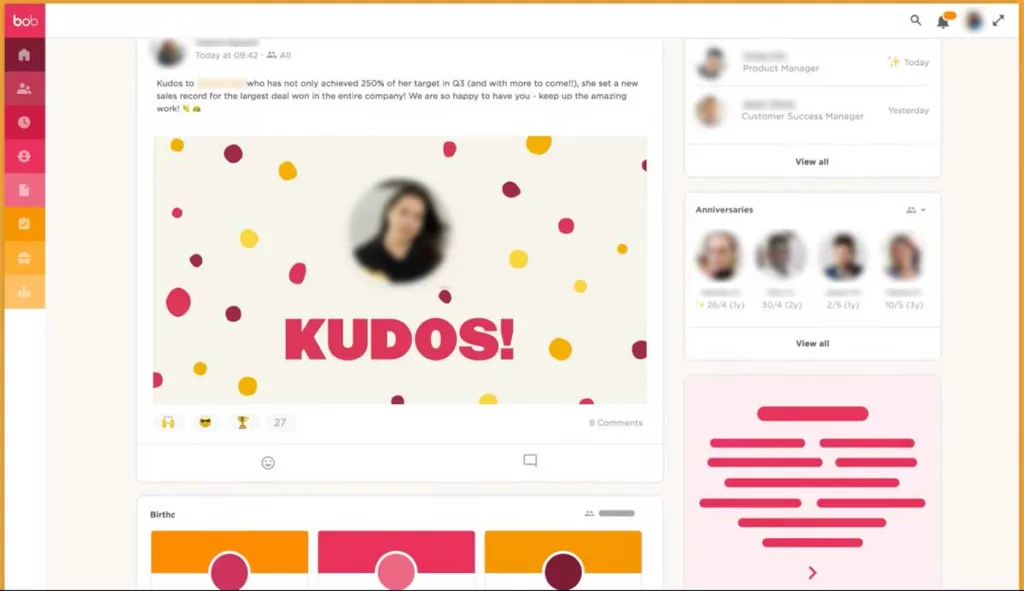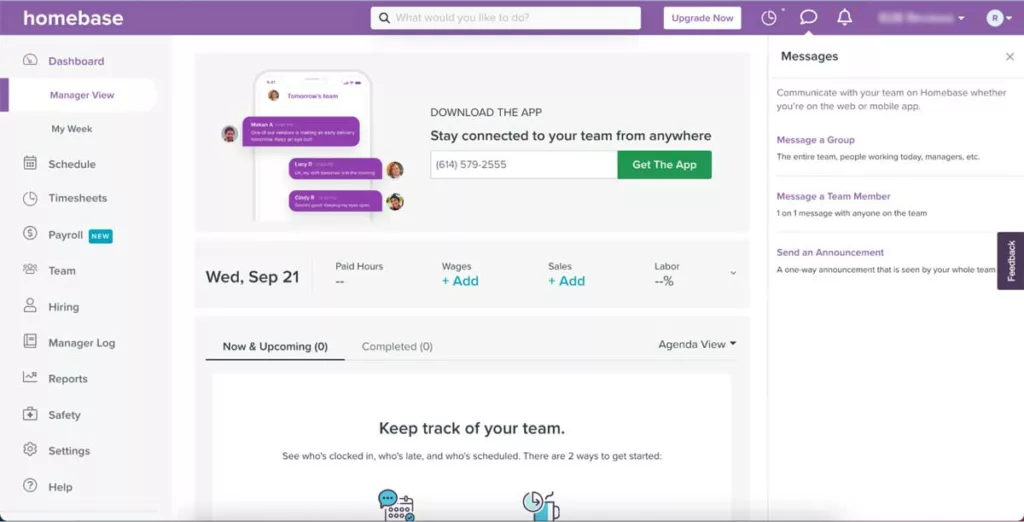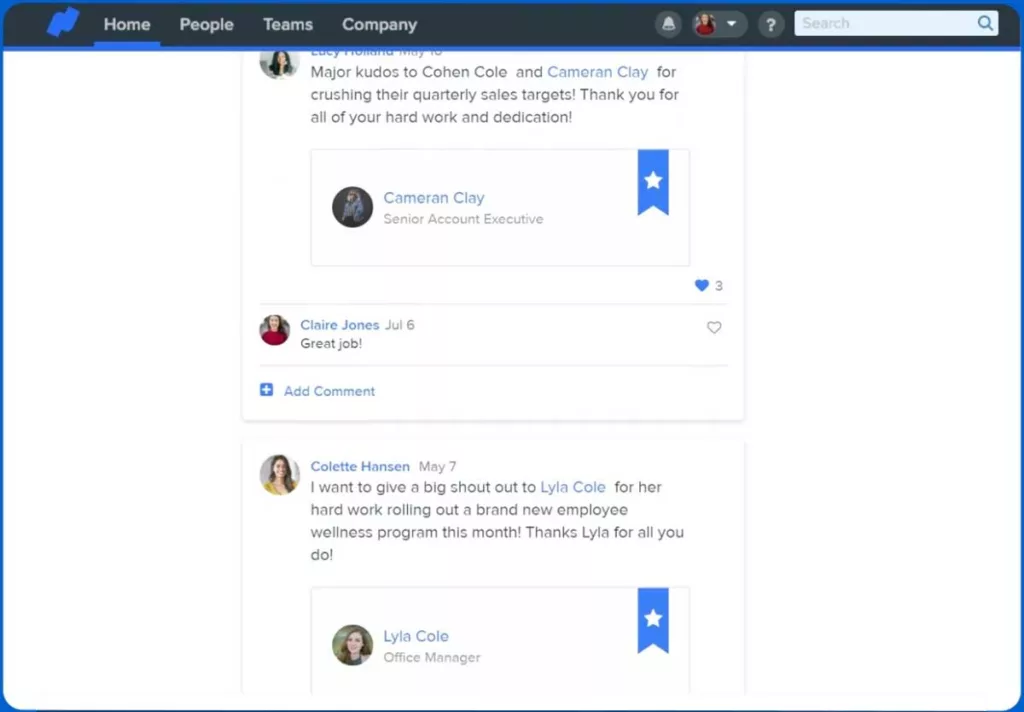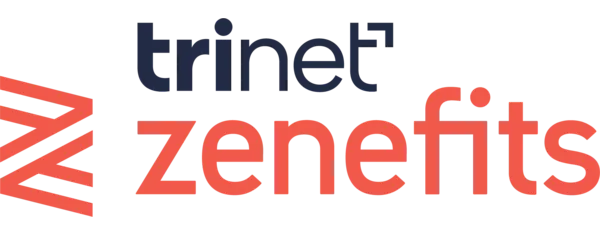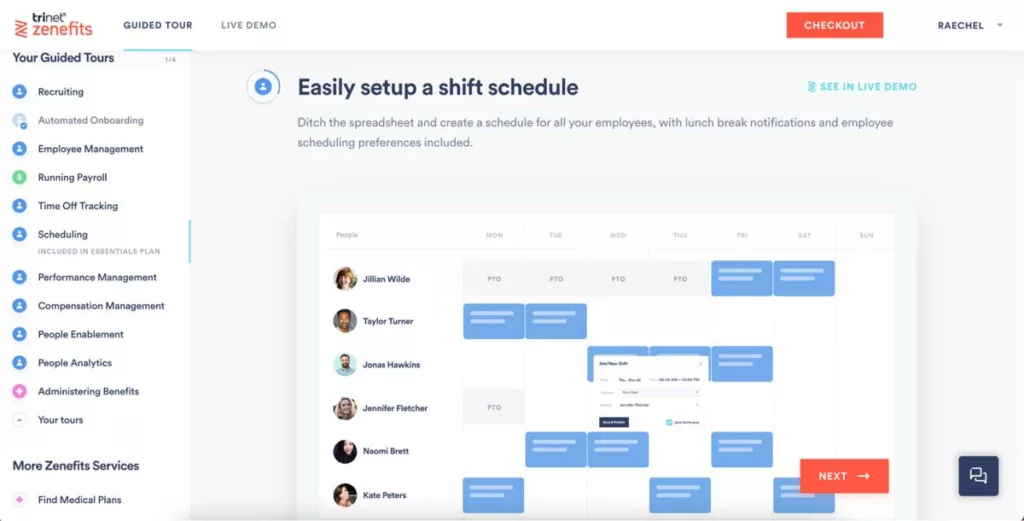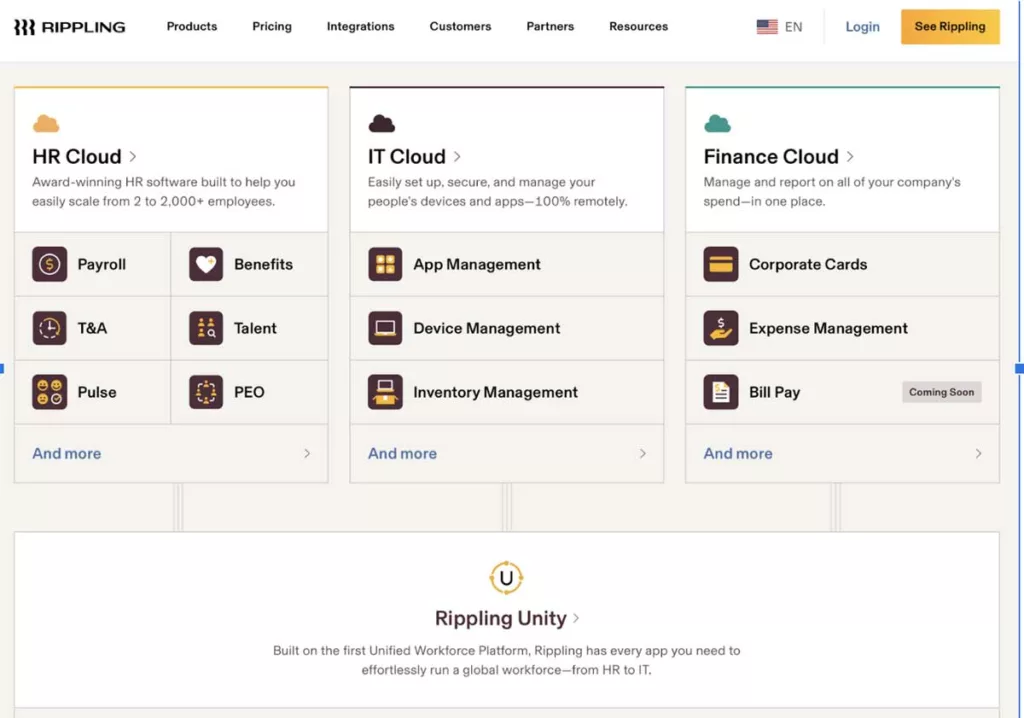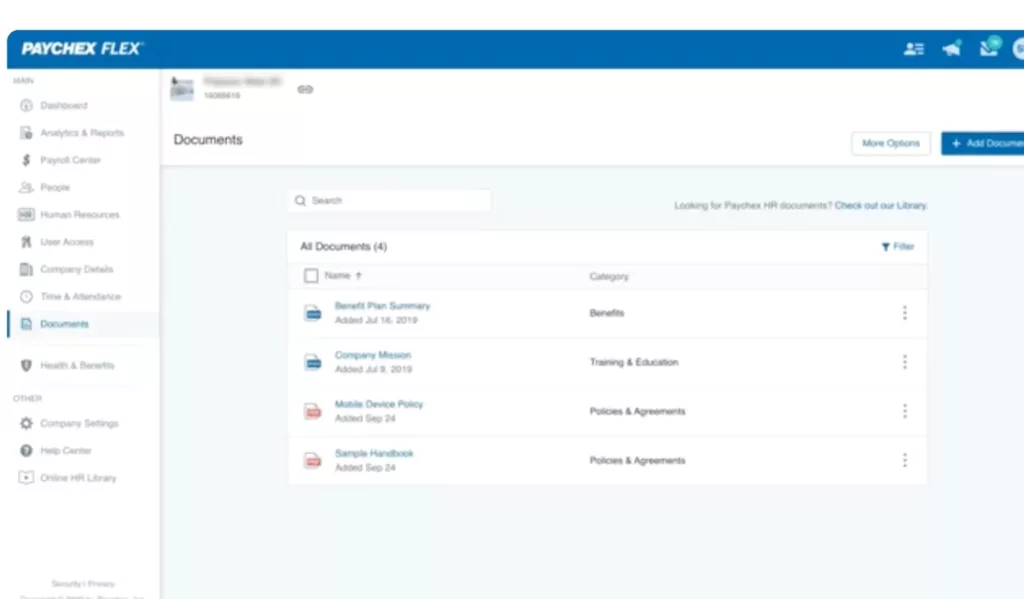Best HR Software for Small Business
We consulted HR experts to identify the top cloud-based HR software providers in 2024
Fact Checked
As a small business, affordable HR tools are within your reach. Whether you’re looking for applicant tracking, record management, scheduling, or payroll solutions in your small business HR software, we’ve got you covered. Our guide helps you compare pricing, weigh the pros and cons, and find the ideal HR software for your small business needs.
Our Top Picks
Small Business HR Software Reviews
Identifying the best human resources software for small businesses involved a deep dive into the HR industry. We began by evaluating 51 popular small business HR systems and meticulously narrowed them down to our top seven selections. Our criteria included feature offerings like transparent pricing, customer support, and brand reputation.
We’ve taken the hard work out of the equation, ensuring that our top picks meet your small business HR needs. Having undergone rigorous scrutiny by our editorial team and the HR experts we consulted, you can trust our recommendations. For a closer look into our selection process, we invite you to explore our methodology.
BambooHR
Best for Hiring and Onboarding
BambooHR offers a comprehensive HR solution, simplifying complex hiring, onboarding, and payroll management processes. Its user-friendly interface and extensive features make it an excellent choice for small businesses.
Paycor
Best HR Software for Payroll
Paycor delivers on the diverse needs of small business owners. It covers every aspect of HR in a single integrated platform, from recruitment to efficient payroll management and HR support. With Paycor, you can enhance your workforce management, improve employee experiences, and simplify benefits administration, all in one user-friendly platform.
Deel
Best HR Software for Global Teams
Deel is your HR ally, delivering top-notch hiring, payroll, and compliance solutions for international teams. Renowned for its agility and precision, Deel simplifies the intricate world of localized tax and compliance, ensuring a seamless global employee journey.
Monday.com
Best for Customized HR Workflow Management
Monday.com, though primarily a project management tool, offers valuable HR management features for small businesses. Its customizable platform supports recruiting, onboarding, record management, employee well-being, and learning, making it a versatile choice for HR tasks.
Gusto
Best for Small Teams and Startups
With competitive pricing and a unique plan for paying contract workers, Gusto delivers customizable HR solutions for startups and small businesses. Gusto’s features include payroll with essential tools for compliance, benefits administration, hiring, and time tracking.
TimeTrakGo
Best HR Software for Time Tracking
TimeTrakGo offers a user-friendly online time clock and scheduling solution tailored for small businesses needing HR support. It prioritizes efficient time tracking to help you reduce overtime costs. With transparent pricing options and integrations with popular payroll software, it simplifies the management of your workforce.
Workable
Best for Recruiting and Applicant Tracking
Workable is a comprehensive HR platform focused on recruiting, designed to simplify small business applicant tracking and hiring processes. It offers job posting, automated candidate tracking, and a referral system to streamline these important and time-consuming HR processes.
Justworks
Best PEO for Small Businesses
Justworks simplifies HR for small businesses by handling complex tasks like payroll, benefits, compliance, hiring, and more. It offers two straightforward plans, Basic and Plus, with per-employee billing and provides user-friendly support for easy onboarding.
GoCo
Best Core HR Software
GoCo delivers HR services designed to assist small businesses in optimizing and simplifying intricate HR operations. The cornerstone of GoCo’s approach is flexibility, with an extensive range of services ready for customization and integration tailored to your company’s specific needs.
Bob
Best for People Management
HiBob – or Bob – is a game-changing HR software for savvy business owners. With its innovative Sandbox feature, you can confidently experiment with essential HR functions and system updates before integrating them. Bob boasts an intuitive, social-media-inspired interface and a robust HRIS toolkit that will help elevate your HR management.
Homebase
Best for Employee Scheduling
Homebase offers comprehensive HR solutions tailored to small business owners. With a robust mobile app, advanced time clock features, and seamless team communication tools, Homebase empowers HR professionals to manage schedules, monitor coverage, and engage with employees on various HR-related matters, ensuring a smooth and efficient workplace environment.
Namely
Best for Mid-Size Businesses
Namely provides a comprehensive HR system that excels in streamlining payroll processes, making it a convenient and efficient choice for managers and employees. Additionally, businesses can incorporate HR tools, recruitment, onboarding, benefits management, and time tracking into their operations.
Zenefits
Best for Compliance Support
Zenefits simplifies building a comprehensive HR infrastructure. With features encompassing core HR, records management, scheduling, onboarding, payroll, benefits administration, and recruitment tools, Zenefits provides a seamless solution in addition to robust compliance management features.
Rippling
Best for Global Solutions
Rippling is a popular platform for hiring and paying globally dispersed employees. It can even assign computers and set up remote tech for employees. It uses three clouds—finance, IT, and HR—to support small to mid-size businesses. For this guide, we review their HR cloud.
Paychex
Best for Startups
Paychex is an all-in-one HR technology that helps you hire, manage, and pay your employees. Between proactive expert HR advice, compliance support, and benefits administration packages, you can attract, hire, engage, and retain top talent throughout their employee lifecycle.
Compare the best small business HR software side-by-side
| Brand | Best for | Starting Price | Free Option |
|---|---|---|---|
| BambooHR | Applicant Tracking & Records Management | Request a quote | 7-day free trial |
| Paycor | Payroll | Request a quote | 14-day free trial |
| Deel | Global Teams | $49 / month / contractor | Free plan |
| Monday.com | Customized HR Workflows | $9 / month / employee | 14-day free trial |
| Gusto | Small Teams | $40 / month + $6 / month / employee | Free “Contractors Only” plan |
| TimeTrakGo | Time Tracking | $3 / month / user | 14-day free trial |
| Workable | Hiring and Onboarding | $129 / month | 15-day free trial |
| Justworks | PEO for Small Business | $59 / month / employee | None |
| GoCo | Core HR | $5 / month / employee | None |
| Bob | People Management | Request a quote | None |
| Homebase | Employee Scheduling | $20 / month | Free plan & 14-day free trial |
| Namely | Mid-Size Businesses | Request a quote | None |
| Trinet Zenefits | Compliance | $8 / month / employee | None |
| Rippling | Global Solutions | $8 / month / employee | None |
| Paychex | Startups | $39 / month + $5 / employee | None |
What is HR software?
Human Resources (HR) software is designed to efficiently manage employee data and facilitate various HR operations essential for your business, such as payroll processing, employee benefits administration, recruitment, training, talent development, and offboarding. Most modern HR software solutions are cloud-based, offering flexibility and accessibility.
You can also consider outsourcing certain HR functions to specialized companies for seamless handling. For instance, you can opt to have a reputable organization handle your payroll processing, ensuring accuracy and compliance. This strategic approach allows you to focus on your core business activities while entrusting HR tasks to experts in the field. This can enhance efficiency and peace of mind, allowing you to concentrate on growing your business.
Types of HR Software
When it comes to HR software, there is a wide array of platforms, each tailored to enhance and streamline various aspects of your workforce management. These solutions come in diverse forms, catering to specific HR needs, and they are designed to empower business owners like you to navigate the complexities of workforce management with confidence and efficiency.
Let’s explore the notable ones.
Applicant Tracking Systems (ATS)
Designed with precision for efficient recruitment and hiring processes, ATS platforms are your allies in optimizing job postings and ensuring no crucial tasks slip through the cracks during recruitment. BambooHR is a shining example of an ATS, although you might also consider ApplicantPro, Avature, Freshteam, Greenhouse, Teamtailor, and Workable for your recruitment needs.
Employee Scheduling Software
As the name suggests, these HR software tools facilitate seamless employee scheduling, time-off approvals, overtime tracking, and shift management. They offer real-time insights into staff availability and skills, empowering you to make informed decisions. Our top picks in this category are Homebase, 7Shifts, and Deputy.
Human Resource Information Systems (HRIS)
Often referred to as human resource management systems (HRMS), HRIS is the central hub for managing employee information. Typically favored by HR professionals and larger companies with 50 or more employees, this software category provides robust capabilities. Consider exploring options such as HiBob, GoCo, BambooHR, Namely, and Zenefits for your HRIS needs.
Learning Management Systems
Regardless of your business’s size, learning management systems are instrumental in developing training courses, organizing course materials, conducting assessments, and awarding certificates based on performance. Absorb LMS and TalentLMS are noteworthy choices, particularly suitable for organizations requiring training in locations without on-site HR staff.
Onboarding Software
Elevating the employee onboarding experience for your new hires is pivotal for boosting employee retention rates. Onboarding software, such as BambooHR, offers centralized dashboards to track and facilitate new hire tasks and progress. The result is a personalized and engaging onboarding experience that your employees will truly appreciate.
Payroll Software
Precision in payroll management is essential to ensure employees are paid accurately and punctually while complying with payroll tax regulations. Deel, Gusto, Justworks, Paycor, ADP, and BambooHR are reliable options to explore.
Professional Employer Organization (PEO)
For those seeking to outsource various HR functions and mitigate HR-related liabilities, PEOs step in as co-employers, managing specific HR processes adeptly. Consider firms like Justworks, Rippling, and Remote for your PEO needs.
Time-Tracking Software
Employee performance and productivity hinges on effective time management, and time-tracking software plays a vital role in this endeavor. While many HR software providers include time-tracking features, simplified and cost-effective solutions like TimeTrakGO are available if you primarily need time-tracking capabilities or want to integrate a time-tracking solution into your existing payroll system.
How do you know when your small business needs an HR software solution?
If you’re running a small business, there are clear signs that indicate the need for an HR software solution. If your business is experiencing any of the following, it’s time to consider implementing HR software to improve efficiency, compliance, and overall HR management:
- Manual HR tasks have become overwhelming
- HR responsibilities are consuming too much time
- Compliance, labor laws, and regulations seem overly complex
- A self-service employee portal would help update information, request time off, or access payroll-related documents
- You have complex payroll calculations and/or employees in more than one state
- Recruiting is becoming a challenge
- You need a structured and streamlined process for performance evaluations
- Organizing and maintaining employee records has become cumbersome
- Benefits administration is a lengthy process
- You want to make data-driven decisions and manage your workforce more effectively
Benefits and ROI of HR software for a small business
Small business owners can benefit from incorporating a human resources management system into their operations. “I’ve found that as an HR professional, having the right HR software allows me to have the resources to do my job well and focus my energy on the priorities that will move my business forward,” Krystal Speed, CEO of HR Strategist told us. Other benefits include:
- Ensuring compliance. Small business HR software helps you maintain compliance effortlessly. The IRS says that third-party payroll software aids in meeting tax filing deadlines and deposit requirements, ensuring you stay on the right side of the law.
- Enhancing reputation. Efficiently managing recruitment, hiring, and onboarding with HR software leaves a positive impression on prospective and current employees. It showcases your commitment to making their work easier, fostering a favorable image for your company.
- Retaining talent. Employee turnover can be costly – think upwards of $4,700 per hire, according to the Society for Human Resource Management (SHRM). Small businesses can save on recruitment expenses by investing in HR solutions like BambooHR and Gusto, which encompasses recruiting, onboarding, and performance management to help retain top talent once they’re hired.
- Saving time. Automating processes like recruiting, onboarding, payroll, and performance reviews frees up your time to concentrate on more significant tasks related to your small business.
“Having the right HR software allows me to have the resources to do my job well and focus my energy on the priorities that will move my business forward,”
Krystal Speed, CEO of HR Strategist
Key features to look for in small business HR software
When evaluating HR software for small businesses, consider the following key features:
- Benefits management. Ensure the software allows you to effectively manage and administer employee benefits, simplifying the often-complex benefits management process. We recommend checking out BambooHR, Paycor, Gusto, and Justworks if benefits administration is on your list of HR software requirements.
- Employee record management. Seek software with robust document and record-keeping functionalities for employee information, offering a core platform for easy access and updates. Also, ensure the security and data privacy measures support keeping this information secure.
- Hiring and onboarding. Look for HR software that provides tools to track job applicants throughout the hiring process efficiently, nurtures a positive candidate experience, and offers streamlined onboarding procedures to get new hires started quickly. Workable, Paycor, and BambooHR really shine in this area.
- Payroll. Prioritize payroll processing capabilities within the HR software to handle employee pay, tax deductions, and timely filings accurately and efficiently. We recommend Paycor, Gusto, and Justworks if payroll is your top priority.
- Time tracking. Choose a system that includes employee time-tracking capabilities to monitor work hours accurately, and consider whether it offers scheduling tools for optimizing workforce management. Additionally, ensure that it easily integrates with your payroll processing software for accurate payment of wages. TimeTrakGo is specifically designed for time tracking and scheduling, but it also integrates with many popular payroll providers, so we recommend checking them out if your small business needs a straightforward time-tracking solution.
Other things to consider, according to Krystal Speed, CEO of Your HR Strategist, include ease of use through employee self-service, powerful automation and workflows, robust data, analytics, and reporting features, and great user support with access to a customer knowledge base.
These features, when combined, provide a core HR software solution tailored to the specific needs of small businesses, enabling efficient HR operations and employee management.
How much does HR software cost?
When it comes to HR software, costs can vary considerably, making it essential to weigh your options. The pricing structure for most HR software providers typically involves a monthly fee per employee, sometimes coupled with a base monthly fee.
If you’re seeking a budget-friendly HR solution, GoCo stands out as an affordable choice, starting at just $5 per employee per month. On the other end of the spectrum, Justworks ranks as one of the more premium options, costing $59 per employee per month.
Gusto takes a different approach, incorporating a monthly base fee of $40 and a charge of $6 per employee per month. It’s worth noting that Homebase calculates costs on a per-location basis rather than per employee.
How much does an HRIS system cost for a small business?
Regarding HR software pricing for small businesses, it’s important to note that pricing transparency varies among providers. Some companies, like BambooHR and Paycor, offer free trials but require you to request a custom quote to get detailed pricing information.
On the other hand, platforms such as Gusto, monday.com, TimeTrakGO, Workable, and Justworks are more straightforward with their pricing structures.
If you’re looking for cost-effective alternatives, some HR software providers offer free plans, such as Homebase and Deel. Additionally, Gusto offers the flexibility of waiving its monthly base fee when you exclusively deal with contractors, resulting in a minimal charge of $6 per month per contractor.
If you have unique workflows and business needs, BambooHR, Namely, and HiBob present highly customizable solutions.
To obtain pricing information tailored to your specific requirements, you’ll need to speak with a company representative and request a personalized quote. This approach ensures you receive a solution that aligns seamlessly with your business objectives and budget considerations.
Use the following chart to compare prices for the vendors on our list.
| HR software | Monthly Fee |
|---|---|
| BambooHR | Undisclosed |
| Paycor | Undisclosed |
| Gusto | $40 (waived for contractors) |
| Monday.com | None |
| TimeTrakGo | None |
| Workable | $129 |
| Justworks | $59 |
Advice for choosing the best small business HR software for your organization
When choosing the best small business software for your business, there is a lot of advice floating around.
Our HR expert, Krystal Speed, says, “When I’m considering HR software for my clients, I’m looking for key features like ease of use through employee self-service, powerful automation and workflows, robust data, analytics and reporting features, and great user support/access to a customer knowledge base.”
Here are some other great tips for finding the best small business HR software from HR experts and small business owners we surveyed:
Customer service is key: “Make sure that there is strong customer service available to users,” says an Assistant Director of Talent Acquisition.
Compare software and providers: Research and evaluate multiple providers to find the one that best aligns with your organization’s needs, industry, and company culture, advises one five-year Small Business Owner.
Think about future growth: Taking it a step further, a Chief People Officer we interviewed told us, “I would advise them to plan for a service that not only addresses current pain points but will also serve your business needs that will come with growth. Think five years from now and plan for the number of employees/contractors you anticipate.”
Integration is important: “Make sure all systems can be fully integrated so that you do not have to add extra steps,” one HR Director told us.
Small business HR software frequently asked questions (FAQ)
What should you look for in HR software?
When considering HR software for your business, focus on essential features like employee records management, hiring and onboarding tools, benefits administration, scheduling, time tracking, and payroll. Some providers offer additional features like compliance tools and performance reviews. To choose the right software, identify your specific HR needs and find a solution that aligns with them.
What is HR software used for?
HR software is a vital tool for businesses of all sizes. It simplifies payroll, streamlines operations, and efficiently manages employee data, saving significant time and cost. Moreover, leading HR software ensures tax and payroll compliance, aids talent retention, and guarantees accurate and punctual employee compensation.
Which is the best HR software?
While we recommend any of the companies on our list, determining the best HR software means finding the perfect fit for your business. We suggest getting quotes from a couple of companies on our list and weighing your options. Begin by identifying your top priorities and assessing your existing HR processes. Look for software that addresses your most pressing challenges, making it the best HR software for your business.
“The best HR software helps me streamline key tasks, empower employees to manage aspects of their employment relationship, maintain important records, and stay compliant,” says Speed. “As an HR professional, having the right HR software allows me to have the resources to do my job well and focus my energy on the priorities that will move my clients’ businesses further and support the varied needs of their employees.”
How do I implement HR in a small business?
Implementing HR in your small business involves establishing processes and systems to manage human resources and ensure compliance with employment laws effectively. This means assessing your needs, determining your HR pain points, and identifying HR software that will help you streamline HR tasks and manage your data in ways that meet your unique needs.
Remember that the specific steps and level of HR implementation will vary depending on your business’s size, industry, and company culture. It’s important to tailor your HR processes to align with your company’s goals.
Why do small businesses need HR software?
Overall, HR software can significantly help small businesses streamline processes, save time, and save money by doing what is often assigned to an individual employee (whether an HR professional or not). With one employee doing the job of a whole HR department comes several challenges that can be avoided when small businesses adopt HR software and free up their time for other business tasks.
What does HRIS stand for?
HRIS stands for “Human Resources Information System.” It refers to software or a computerized system that manages various human resources functions and information within an organization. HRIS systems help streamline HR processes, store employee data, facilitate payroll management, and support other HR-related tasks and functions.
What does HCM stand for?
HCM stands for “Human Capital Management.” HCM encompasses various aspects of managing an organization’s workforce, including recruitment, talent management, performance management, workforce planning, and other related functions. While HRIS primarily focus on managing HR data and processes, HCM encompasses a broader range of strategies and practices to optimize the organization’s human resources to achieve business objectives.
What are the advantages and disadvantages of an HRIS system?
An HRIS can greatly benefit small businesses by streamlining HR tasks such as hiring and onboarding, run payroll, benefits administration, time tracking, and employee records, resulting in increased operational efficiency and greater employee engagement. It also reduces compliance risks and provides accurate data that can be used to make data-driven decisions. Finally, an HRIS system empowers your employees with self-service options, easing your administrative burdens.
As a small business owner, you should be aware of the initial costs associated with implementing an HRIS system, including setup and subscription fees, sometimes billed per employee or per location, which can strain limited budgets. Some HR software carries a steep learning curve that can initially affect productivity. Because HR software stores and manages confidential employee information, robust data cybersecurity measures are needed, which can also accumulate costs. Finally, integrating the HRIS system with other software may present challenges that require careful planning and assessment.
Methodology: How we choose the best HR software for small businesses
We meticulously curated our list of HR software vendors ideal for small businesses using several research methods, including a scoring system, in-depth interviews, surveys, live software demos, and thorough reviews of the vendor and parent company websites.
Starting with a list of over 70 HR software companies currently on the market, we narrowed it down to the very best and most suited for small businesses. How did we do this?
To ensure the utmost accuracy, we implemented our own scoring system. We rated each vendor on four critical areas with a score of 1 (poor) to 5 (excellent), each representing 25% of the overall score. These four key areas include:
- Brand Reputation: A company’s reputation is a testament to its commitment to customer satisfaction. We gathered data from customer reviews and ratings on trusted third-party review platforms to gain insights into each vendor’s standing in the eyes of its customers.
- Feature Variety: We prioritized vendors offering a comprehensive suite of HR tools, including hiring and onboarding solutions, benefits administration, employee scheduling, time tracking, records management, and payroll services. Higher scores were awarded to companies encompassing all these features, indicating a more streamlined employee experience and improved HR team efficiency.
- Onboarding and Support: We examined customer support and onboarding processes, favoring vendors that offer various forms of ongoing support. We also assessed whether data migration and onboarding are inclusive or offered as add-on services.
- Pricing Transparency: In today’s business world, transparency is paramount. We compared actual pricing and plans for each vendor and assessed whether this information is readily available online or requires a custom quote request. Vendors providing transparent pricing and offering free trials received higher scores in this category.
Our analysis is rooted in extensive research and meticulous evaluation, aimed at providing business owners like you with the most authoritative and informed guidance on selecting the best small business HR software.





